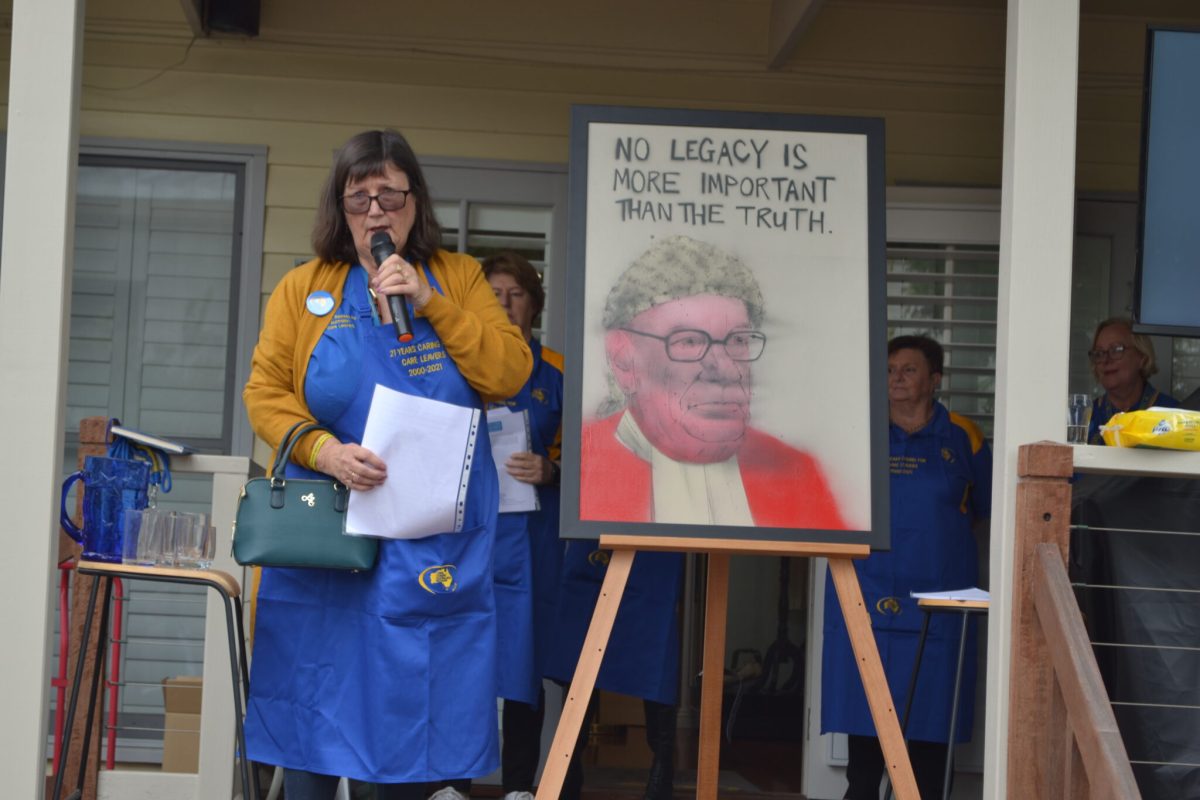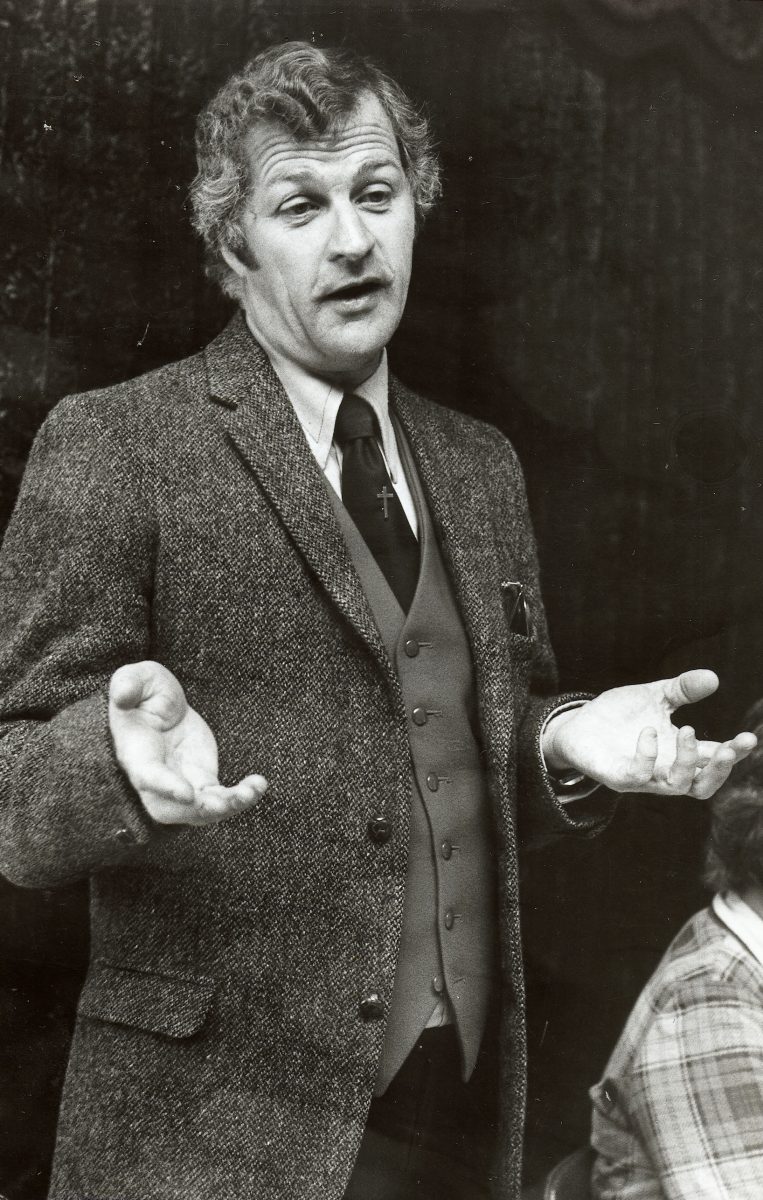
Child abuse survivor advocate Leonie Sheedy says the church is not practising what it preaches. Photo: Australian Orphanage Museum.
CONTENT WARNING: This article discusses child sex abuse.
The Catholic Church maintains a hardline attitude that “prolongs the pain” of clergy abuse victims despite developing policies to change their ways, according to prominent survivor advocates.
The behaviour of the Church has been in the spotlight in the wake of a landmark jury verdict against it on 10 November 2023.
A case before the Victorian Supreme Court saw a former alter boy awarded a record $3.3 million payout from the Wagga Diocese, which was found to have failed to protect him for the abuse he suffered at the hands of paedophile priest Vincent Kiss.
In a follow-up hearing, legal representatives for the Wagga Diocese mounted arguments to reduce the victim’s compensation payout.
Kim Price, partner at Arnold Thomas & Becker, the law firm that represented the victim, was critical of how the church conducted itself.
“This case went to trial largely because the Church refused to acknowledge the impact of the abuse on our client … the Church forced our client to endure years of litigation, days of cross-examination, including his wife, and weeks of trial,” he said.
Seven years ago, the Catholic Church vowed to change the way it treated alleged clergy abuse victims in the wake of a child abuse royal commission held in 2015, which highlighted the extent to which survivors were re-traumatised by aggressive legal tactics and delays in the 1980s and 1990s.
In 2016, it developed and published “model litigant guidelines” to ensure church authorities would “pursue a compassionate and consistent approach towards victims of child sexual abuse”.
The new policy stated the Church needed to be “mindful of the potential for litigation to be a traumatic experience for claimants who have suffered sexual abuse” and to pay up on “legitimate claims without litigation”.
Leonie Sheedy, CEO of Care Leavers Australasia Network (CLAN), which advocates for survivors of abuse in institutions, said these guidelines were being completely ignored.
“Money is their God,” she said. “They said lots of warm, fuzzy, empathetic words to the royal commission but in reality, it’s the exact opposite, they fight tooth and nail for their money … they try to prolong the pain of victims.”
These sentiments were echoed by Frank Golding, a historian and long-time advocate for child abuse victims.
“When they get into court their lawyers go for it hammer and tongs … that’s the instruction they give to their lawyers – ‘go hard’,” he said.
“They want to save money and they’re prepared to put up a fight even though they should’ve learned that reputational damage goes also with civil litigation, especially if they fight cases the way they do.
“It’s a while since the child abuse royal commission gave them a hard time, it seems the gloves are off again.”
Region asked the Wagga Diocese if it had been following the church’s model litigant principles in the Vincent Kiss case before the Victorian Supreme Court.
“This matter is still before the court and so it is not appropriate that I comment on it at this time,” Wagga Bishop Mark Edwards said in response.

Father Vincent Kiss has been convicted of multiple offences. Photo: Supplied.
The Catholic Church was one of the first institutions to sign up to a national redress scheme formed as a result of the child abuse royal commission – an independent process in which alleged abuse victims could seek compensation without having to go through the court system.
“The Catholic Church were very keen to join [this scheme] which had a cap of $150,000 [the maximum compensation for a victim], because it meant much lower payouts and avoiding the reputational damage of going through court cases,” Mr Golding said.
“It’s cheaper, quicker and cleaner for them … I think they’re disappointed that some people prefer to go through the civil litigation pathway because of that realisation, if successful, you’ll get much more than you will through the national redress scheme.”
Ms Sheedy, however, said the court process was still unattainable for many survivors.
“Care leavers never go to the civil courts, it’s really only for the middle class. The poorest victims don’t go to the courts because they don’t have the money or the time.”
Victorian Supreme Court Judge Stephen O’Meara is expected to make his final judgement on the Vincent Kiss case before the end of the year.
Original Article published by Oliver Jacques on Region Riverina.






